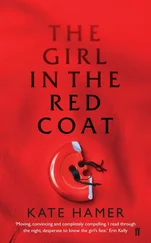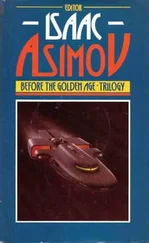Sam Eastland - The Beast in the Red Forest
Здесь есть возможность читать онлайн «Sam Eastland - The Beast in the Red Forest» весь текст электронной книги совершенно бесплатно (целиком полную версию без сокращений). В некоторых случаях можно слушать аудио, скачать через торрент в формате fb2 и присутствует краткое содержание. Год выпуска: 2013, ISBN: 2013, Издательство: Faber & Faber, Жанр: Исторический детектив, на английском языке. Описание произведения, (предисловие) а так же отзывы посетителей доступны на портале библиотеки ЛибКат.
- Название:The Beast in the Red Forest
- Автор:
- Издательство:Faber & Faber
- Жанр:
- Год:2013
- ISBN:9780571281466
- Рейтинг книги:4 / 5. Голосов: 1
-
Избранное:Добавить в избранное
- Отзывы:
-
Ваша оценка:
- 80
- 1
- 2
- 3
- 4
- 5
The Beast in the Red Forest: краткое содержание, описание и аннотация
Предлагаем к чтению аннотацию, описание, краткое содержание или предисловие (зависит от того, что написал сам автор книги «The Beast in the Red Forest»). Если вы не нашли необходимую информацию о книге — напишите в комментариях, мы постараемся отыскать её.
The Beast in the Red Forest — читать онлайн бесплатно полную книгу (весь текст) целиком
Ниже представлен текст книги, разбитый по страницам. Система сохранения места последней прочитанной страницы, позволяет с удобством читать онлайн бесплатно книгу «The Beast in the Red Forest», без необходимости каждый раз заново искать на чём Вы остановились. Поставьте закладку, и сможете в любой момент перейти на страницу, на которой закончили чтение.
Интервал:
Закладка:
Although Stalin could barely admit it, even to himself, he was jealous of Major Kirov and Pekkala, of the cramped office they shared and the banter of their conversations, to which he often listened through the bugging devices he had ordered to be installed. He envied the meals they cooked on Friday afternoons. With his mouth watering at the sound of the cutlery clinking on their plates he would fetch out one of several tins of sardines in olive oil and tomato sauce, which he always kept on hand in his desk drawer. Tucking a handkerchief into his collar, Stalin would eat the sardines with his bare hands, spitting the bones back into the tin. Now and then, he would pause to adjust the headphones with his greasy, fish-scaled fingers, all the while snuffling with laughter at the jokes which passed between Kirov and Pekkala.
In spite of everything, he had missed the Emerald Eye. Yes, it was true that, after the Amber Room incident, he had ordered Pekkala to be liquidated immediately. It was also true that he had commanded Special Operations to begin surveillance upon Major Kirov, in the futile hope that the great Inspector might make himself known to his assistant. But things were different now. Stalin’s rage had subsided and, until today, he had felt ready to purge this from the tally sheet that he kept inside his head of the many snubs, real or imagined, but both equally damning, which he had received over the years. In the case of Pekkala, it was a very long list, in fact unequalled by anyone still living. To forgo the satisfaction of punishment was a gift more valuable than any Stalin had given out before, which made Pekkala’s disappearance all the more wounding to his pride.
Now, with this most recent news, the anger had returned. Stalin would have his vengeance. Akhatov was coming. He had summoned the dragon from its lair.
A moment later, the door swung open and there stood Poskrebychev, his face a mask of bewilderment, as if his limbs had brought him there against his will.
Stalin fixed him with a stare. ‘What is it, Poskrebychev?’
‘Why, Comrade Stalin?’ he whispered. ‘Why Akhatov? Why bring that monster to the Kremlin?’
To Poskrebychev’s astonishment, Stalin did not evict him from the room amid a fresh barrage of curses. Instead, he considered the question for a moment before resting his knuckles on the desk top and heaving himself to his feet. ‘Come here to me, Poskrebychev,’ he said, and in his voice there was an unfamiliar gentleness, almost like pity, like that of a man speaking to an old and faithful animal which he is about to put down. As Poskrebychev approached, his eyes walled with fear, Stalin walked out from behind the desk and rested his hand upon his secretary’s shoulder.
To Poskrebychev, the weight of that hand felt like a sack of concrete.
Stalin walked him across the room to the window which looked out over Red Square. As was his custom, Stalin himself stood to one side of the window, unwilling to show his face to anyone who might be looking up from below. ‘I want you to understand something,’ he began.
‘Yes, Comrade Stalin,’ replied Poskrebychev, too terrified to speak above a whisper.
‘In spite of our differences,’ explained Stalin, ‘Inspector Pekkala and I have shared one common goal — the survival of this country. Under such circumstances, old enemies like the Inspector and I can learn to work together, even to trust each other. But there are limits to this partnership. There are only so many times that warlock can thumb his nose at me and get away with it!’
Poskrebychev opened his mouth. He had no idea what words to choose, but he felt he must say something in defence of the Emerald Eye, no matter what it cost him in the end.
But at that moment Stalin’s hand, which was still resting upon his shoulder, suddenly dug into the flesh around Poskrebychev’s collarbone, causing the frail man to gasp with pain.
‘That may not be the way you see it,’ Stalin continued, ‘but it’s the way I see it. And the way I see it is the way it is. Do you understand me now, Poskrebychev?’
This time, Poskrebychev could only nod.
At last, Stalin’s hand slipped from its perch. Soundless in his kidskin boots, he returned to his desk and removed a cardboard box of cigarettes from the top pocket of his tunic.
For a moment longer, Poskrebychev remained at the window, looking out over Red Square and unable to shake the sensation that he was being watched. He felt certain that, somewhere out there among the rooftops of the city, the eyes of a stranger were upon him. Instinctively, he stepped to one side, behind the thick red velvet curtain.
‘It’s out there, isn’t it?’ There was the rustle of a match as Stalin lit a cigarette.
Poskrebychev turned to face his master. ‘I beg your pardon, Comrade Stalin?’
Holding the match between his thumb and index finger, Stalin waved it lazily from side to side until the flame disappeared in a ribbon of smoke.
‘You heard me,’ he replied.
Back at his desk, Poskrebychev took out a clean sheet of paper and wound it into the typewriter, an American Smith and Brothers model no.3, fitted with Cyrillic lettering, a personal gift to Poskrebychev from Ambassador Davies. Poskrebychev folded his hands together and then, extending his arms, bent his fingers backwards until they cracked. He paused for a moment, fingertips hovering above the machine. Slowly, he typed out the name ‘Akhatov’ and under the heading he wrote ‘Lost Cat’, the code word agreed upon between Stalin and the agent, to signal his immediate summons to the Kremlin. And then the room filled with a sound like miniature gunfire as his fingertips raced across the keys. Within minutes, Poskrebychev had completed the message and it was taken by courier to the Kremlin telegraph office for immediate dispatch. He then ordered a plane to be fuelled and placed on standby at an airfield just outside the city. The fastest one available was a Lavochkin fighter, specially outfitted with two seats for use as a training aircraft.
When hours passed without reply, Poskrebychev allowed himself to hope that perhaps the Siberian might have moved on beyond the Kremlin’s reach. After all, it had been several years since Stalin had required the services of the notorious Siberian. But just as he was preparing to go home for the day, one of the Kremlin guards called the office.
‘There’s someone here,’ said the guard. ‘He won’t give his name. He says it’s about a lost cat. Should I just throw him out?’
‘No,’ sighed Poskrebychev. ‘Send him up.’
It was not long before a heavy-set man entered Stalin’s outer office, which was Poskrebychev’s personal domain. He had a mop of curly brown hair, a hooked Roman nose and cheerful, ruddy cheeks. He wore a belted raincoat and old-fashioned black ankle boots which fastened with buttons. Under his arm, he carried a brown paper parcel tied with string.
‘Akhatov,’ said Poskrebychev, as if quietly uttering a curse.
The man nodded at the door to Stalin’s office. ‘Should I go straight in?’
‘Yes. He is expecting you.’
Stalin was sitting at the small table in the corner of his study where he took his meals and morning tea. The table had a round, brass top, engraved with a prayer in Arabic. Stalin had spotted the table on display at the Hermitage museum and had ordered it brought to the Kremlin. ‘It’s just the size I want,’ he told the bewildered museum curator.
In front of Stalin was a glass of tea, supported in a brass holder. Also on the table was a small bowl filled with rock sugar, which resembled fragments of a broken bottle. Stalin set one of these pieces between his teeth and sipped at the tea as he gestured for Akhatov to take a seat in the chair on the other side of the little table.
Читать дальшеИнтервал:
Закладка:
Похожие книги на «The Beast in the Red Forest»
Представляем Вашему вниманию похожие книги на «The Beast in the Red Forest» списком для выбора. Мы отобрали схожую по названию и смыслу литературу в надежде предоставить читателям больше вариантов отыскать новые, интересные, ещё непрочитанные произведения.
Обсуждение, отзывы о книге «The Beast in the Red Forest» и просто собственные мнения читателей. Оставьте ваши комментарии, напишите, что Вы думаете о произведении, его смысле или главных героях. Укажите что конкретно понравилось, а что нет, и почему Вы так считаете.











